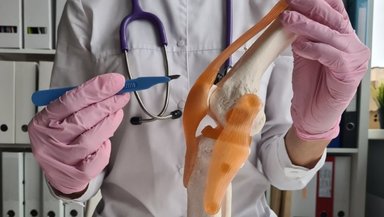Cost, Insurance and Hidden Fees in Shoulder Arthroscopy in India: What to Budget For

Medicine Made Simple Summary
In India, the cost of shoulder arthroscopy can vary widely depending on the city, hospital, surgeon, and type of procedure. Many patients are surprised by additional expenses beyond the surgery itself — such as anesthesia, implants, physiotherapy, and follow-up visits. This article provides a detailed breakdown of shoulder arthroscopy costs in India, explains how insurance works, highlights hidden charges, and helps you budget realistically for the entire treatment journey. By the end, you’ll be prepared financially and medically for the process.
Why Cost Transparency Matters in India
Healthcare in India ranges from government hospitals offering subsidized care to private corporate hospitals with premium charges. Patients often face confusion because advertised surgery costs may not include all components. Lack of cost transparency leads to unexpected bills, especially for implants, medications, or post-surgery physiotherapy. Understanding the complete picture upfront helps families plan better and avoid financial stress during recovery.
Average Cost of Shoulder Arthroscopy in India
The cost of shoulder arthroscopy in India depends on the city and hospital. On average:
1. Government Hospitals: ₹40,000 – ₹80,000 (subsidized, longer waiting times).
2. Tier-2 City Private Hospitals: ₹80,000 – ₹1.5 lakh.
3. Metro City Private Hospitals (Apollo, Fortis, Max): ₹1.5 – ₹3 lakh.
4. Premium Specialty Centers: ₹3 – ₹5 lakh depending on complexity.
Costs include surgery but may not cover rehabilitation, consumables, or complications.
Components of Surgery Cost in India
When budgeting for arthroscopy, it’s important to know what makes up the bill:
- Surgeon’s Fees: Experienced surgeons, especially specialists in metros, may charge higher consultation and surgical fees.
- Anesthesia Charges: General anesthesia adds to costs; anesthetist expertise also matters.
- Hospital Stay: Most arthroscopies are day-care or require 1–2 nights in hospital.
- Implants and Consumables: Anchors, sutures, and surgical kits are billed separately.
- Diagnostic Tests: MRI, X-rays, and blood tests before surgery.
- Post-Op Physiotherapy: A critical but often unplanned expense, usually ₹500–₹1500 per session in metros.
Patients should always request an itemized cost estimate before confirming surgery.
Insurance Coverage for Shoulder Arthroscopy in India
Most health insurance policies in India cover shoulder arthroscopy if it is medically necessary. However, fine print matters:
- Cashless vs. Reimbursement: Leading hospitals have cashless tie-ups; smaller hospitals may require reimbursement claims.
- Waiting Periods: Some policies impose a 2–3 year waiting period for pre-existing orthopedic issues.
- Room Rent Limits: Insurance covers only certain categories of hospital rooms; higher rooms mean out-of-pocket costs.
- Consumables & Implants: Often only partly covered, leaving patients to pay for high-cost anchors or screws.
Tip: Always confirm pre-authorization with your insurer before scheduling surgery.
Hidden Costs to Watch Out For
In India, patients often underestimate hidden costs associated with surgery. These may include:
- MRI and Repeat Scans: ₹5000–₹12,000 each, sometimes required multiple times.
- Physiotherapy: Over 2–3 months, this can add up to ₹20,000–₹40,000.
- Medicines and Dressings: Extra prescriptions for pain management and wound care.
- Travel and Accommodation: Patients traveling from smaller towns to metro hospitals incur lodging and transport expenses.
- Lost Income: For working individuals, recovery time may mean salary loss if not covered by leave policies.
These additional costs must be factored into the total budget.
Government vs. Private Hospitals: Cost Differences
Government hospitals like AIIMS, Safdarjung, or state medical colleges offer affordable arthroscopy with skilled surgeons, but waiting times are long. Private hospitals, on the other hand, provide faster scheduling, advanced facilities, and personalized care, but at a higher cost. In smaller cities, private hospitals may charge less but might lack advanced rehab programs. Patients often choose a balance between cost, quality, and convenience.
Financing and EMI Options in India
For patients unable to pay upfront, many private hospitals now offer EMI financing for surgeries. NBFCs (non-banking financial companies) and medical credit cards like Bajaj Finserv Health EMI Card allow patients to spread payments over months. While this helps affordability, interest rates should be reviewed carefully to avoid financial burden.
Case Study: Budgeting for Shoulder Arthroscopy in India
Consider a 40-year-old patient in Bangalore diagnosed with a rotator cuff tear. His cost breakdown was:
1. Surgeon + Anesthesia: ₹80,000
2. Hospital Stay (2 nights): ₹40,000
3. Implants (3 anchors): ₹60,000
4. Diagnostics (MRI, Blood tests): ₹12,000
5. Physiotherapy (3 months): ₹25,000
6. Medicines & Dressing: ₹8,000
Total: ~₹2.25 lakh
Insurance covered ₹1.75 lakh, leaving ₹50,000 as out-of-pocket expense. This example highlights the importance of checking insurance coverage and planning ahead.
Tips to Avoid Cost Surprises in India
1. Request a detailed written estimate from the hospital.
2. Ask your surgeon about the likely number of implants needed.
3. Confirm insurance coverage for implants and consumables.
4. Plan for at least 3 months of physiotherapy.
5. If traveling, budget for lodging, meals, and travel costs.
6. Keep an emergency buffer for complications or revision surgery.
Proper financial planning reduces stress and lets you focus on recovery.
Realistic Expectations on Cost
Patients in India must understand that while arthroscopy is minimally invasive, it is not necessarily cheap. The total expense often exceeds initial estimates due to rehab and hidden charges. However, compared to Western countries, where the same surgery can cost ₹8–12 lakh, Indian healthcare remains more affordable. Patients should balance cost considerations with the need for experienced surgeons and good facilities.
Conclusion
If you are considering shoulder arthroscopy in India, do not limit your planning to the surgeon’s quoted fee. Ask for itemized costs, confirm insurance coverage, and prepare for additional expenses like physiotherapy. By budgeting realistically and asking the right questions, you will avoid financial stress and focus on what matters most — your recovery and return to pain-free living.
References and Sources
Insurance Regulatory and Development Authority of India (IRDAI)







































